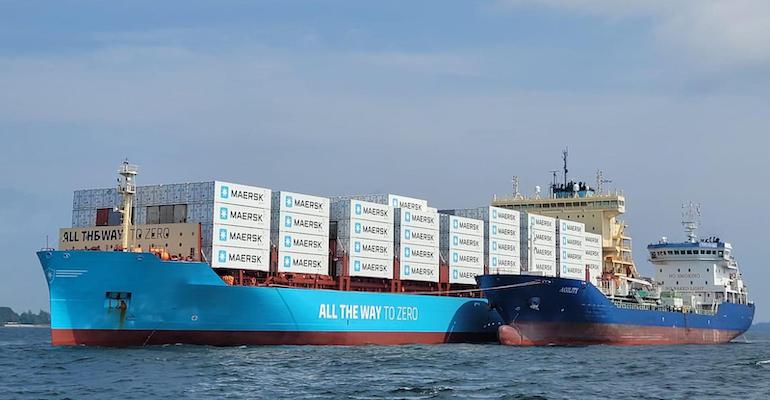The Maritime & Port Authority of Singapore (MPA) Chief Executive Teo Eng Dih revealed the EOI had received over 50 proposals to provide methanol bunkering during in a presentation to the Singapore Maritime Week conference.
The EOI covered three areas – supply, a commercial scale methanol bunkering operating model, and alternatives to physical transfer of methanol to Singapore. Of the 50 plus submissions over 40% covered all three areas of the EOI.
“Over 60 regional and international companies comprising energy companies, fuel suppliers, traders, bunker operators, and storage companies, participated in the EOI, signalling clear business confidence in Singapore as a key offtake location for methanol by international shipping,” MPA said.
Singapore carried out the first ship-to-containership methanol bunkering for Maersk last year and based on consultations with industry annual demand has the potential to reach over 1 million tonnes by 2030.
MPA said the proposals have the potential to supply over 1 million tonnes a year of low carbon methanol by 2030.
Singapore is developing a regulatory framework for methanol bunkering. Standards for methanol bunkering are expected to be published in 2025, and MPA’s licensing framework is expected to be completed in the coming months.
According to DNV’s Alternative Fuels Insight there are 33 methanol fuelled vessels in operation and 236 on order. Availability of green methanol to fuel these vessels remains a key concern.
Copyright © 2024. All rights reserved. Seatrade, a trading name of Informa Markets (UK) Limited.
Add Seatrade Maritime News to your Google News feed.  |

